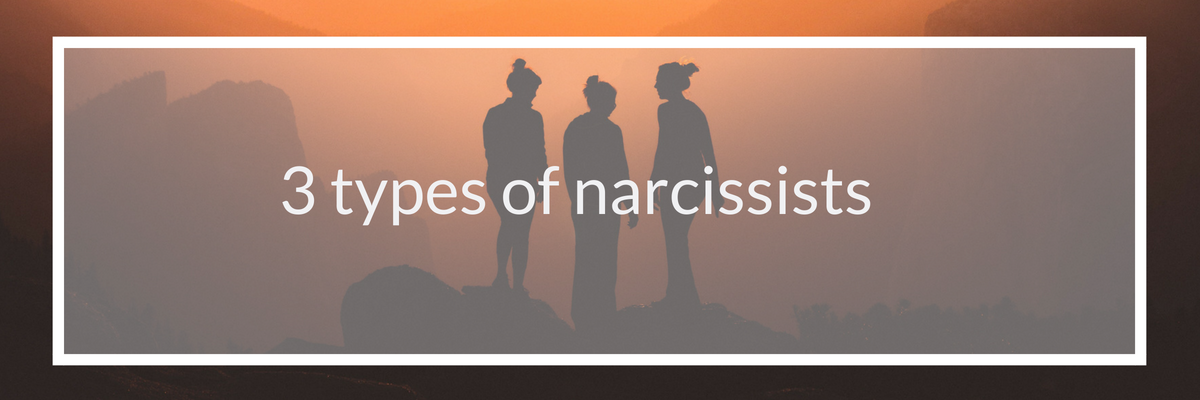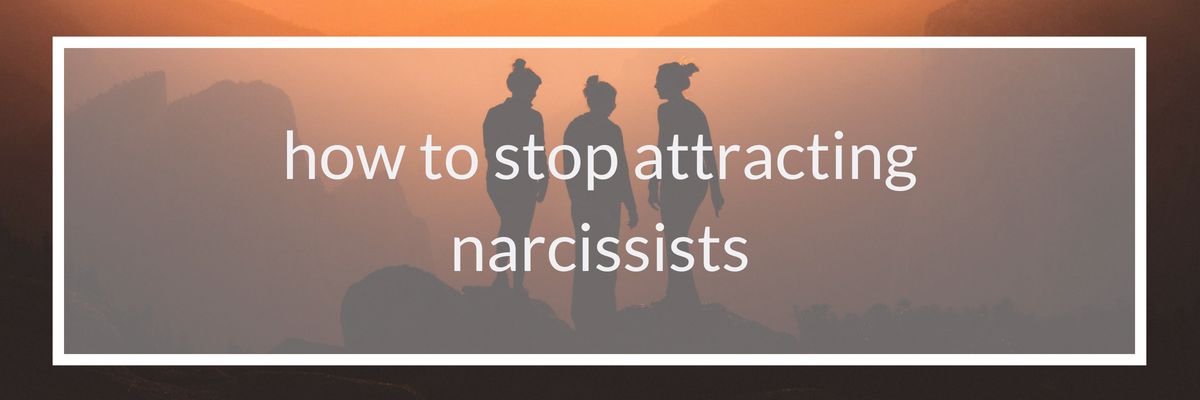It starts off with optimism:
This time it will be different. You won’t get caught out again.
A few months pass, and there are some warning signs. The enormous charm that attracted you or the intense attention starts to abate.
You get a cold feeling in your stomach which you try to tune out. A few put downs, efforts to control or undermine in front of others. If you question it or remark on it, you’re met with cold silences or angry outbursts.
It dawns on you. You’re here again. In another relationship or friendship with a narcissist or emotional abuser.
It can be bewildering, particularly if you’ve done some work on yourself. Why does it keep happening?
The more it happens, the more you question yourself.
This post will help you:
– Understand why you keep dating narcissists or find yourself married to a narcissist / emotional abuser
– The relationship between empaths and narcissists
– See the warning signs of becoming involved with a narcissist / emotional abuser ahead of time
– With what you can do to change the pattern of narcissists / emotional abuser coming into your life
Note: In this article I use mainly a narcissist as an example of an emotional abuser. Of course, there are other types of emotional abuse: being controlling, passive aggressive, witholding, aggression, undermining etc but a narcissist tends to encompass many of these traits, so I’ve focused on them here.
The 3 types narcissists in your life
 Let’s start here:
Let’s start here:
the 3 distinct types of narcissist you might find in your life.
– Partners
– Friends – particularly those made in late teens onwards
– Bosses
At the heart, they probably all have similar characteristics whether they are introverted or extraverted, so we’re going to treat them all the same for the moment.
Extraverted narcissists
The extraverted narcissists will be charming, compelling, will start by making you feel wonderful about yourself. They might seem dynamic, visionary, destined for great things.
When the veneer starts to peel away, and you try to assert yourself, difficult things start to happen:
– You can be met with fury
– You can be shamed
– You can be given the cold shoulder
– You can be blamed
– Your truth can be denied
– You can be gaslighted (so lies claim to be truths and vice versa)
If you start to withdraw, the charm is turned on again. You’re drawn back in and the cycle starts again.
Introverted narcissists
The introverted or covert narcissist goes about things more subtly, in many ways. When the veneer rubs away you find yourself:
– Feeling inexplicably ashamed for stating a need
– Met with withdrawal or sulks when you don’t align or agree
– Taking responsibility for all that is wrong in the relationship
– Scrabbling to make amends, though you’re not sure why
– Treading on eggshells for fear of saying or doing the wrong thing
– Being met with a lack of empathy for what you’re experiencing
– Finding the other completely self-involved
These behaviours, sometimes as baffling as they are, will keep you trapped and vexed. If you withdraw, you will be guilt-tripped or shamed until it hurts too much to refuse.
So why on earth might you keep finding this type of person in your life?
10 surprising reasons narcissists and emotional abusers come into your life
 1 This is strangely familiar
1 This is strangely familiar
If you grew up with a parent who was on the narcissistic spectrum, or emotionally neglectful, these scenarios will feel very familiar. For your adult self, it will defy any logic that you would actively choose to have these kinds of people in your life.
But, at a deeper level, your programming has been written to expect this. (Don’t panic, it’s rewritable!)
Unconsciously, you will gravitate towards these sorts of people, because they remind you of the only reality you knew as a child. However painful that was.
2 This also feels weirdly safe
With familiarity, comes safety. Yes it might seem an odd sort of safety when the dynamic becomes abusive or painful. But from that childhood experience, this is all of what you knew.
It may have even felt normal, because there was no other normal. That’s hard to see from your place as an adult. But safety and familiarity go together.
3 This somehow reinforces a self belief (and it’s not nice)
The third dimension that goes along with familiarity and safety, is one of the most painful aspects of growing up in the shadow of a narcissistic or emotionally neglectful parent.
At your very core, there is a part of you that feels you aren’t loveable or that you don’t matter. That’s the only conclusion a child can come to when they’ve not been validated, seen or accepted for who they truly are.
So receiving an emotional kicking from a friend, partner or boss just takes you back to that familiar place. It confirms, yes, I truly am not loveable for who I am.
This might be hard to digest right now, and it’s absolutely fixable. While it remains in the subconscious, however, this script will continue to play out painfully.
4 This is you people pleasing on steroids
One of the main consequences of being parented by a narcissist or experiencing emotional neglect, can be to develop into a people pleaser.
Think about it. If as a child, you had to adapt to get attention, approval or love from your parent, you quickly learned that pleasing them was a fast route to get that attention. For some, it should be said, things go the other way.
Negative attention through behaviour, substance abuse, results might also have become a pattern. But for many, the opposite is true. Keeping the peace by being the good girl or boy, transmits into adult life and can be terrifying to get free from.
A pleaser is a narcissist’s dream. You’ll generally avoid conflict and want to do everything you can to keep the peace.
A pleaser is a narcissist’s dream. You’ll generally avoid conflict and want to do everything you can to keep the peace. #narcissticabuse Share on X5 This is you acing self sabotage
If you read my post on self-sabotage, you’ll know this goes hand in hand with narcissistic abuse. There’s a part of you that feels you don’t matter, won’t ever matter and so ensures that any major need is booby-trapped or sabotage.
Befriending a narcissist. Working for one. Falling in love with one. All these are examples of how the self-sabotage script gets played out unconsciously.
Befriending a narcissist. Working for one. Falling in love with one. All these are examples of how the self-sabotage script gets played out unconsciously. #narcissisticabuse Share on X6 This is you on a mission to fix others
For someone raised by a narcissist, the idea of fixing others can be intoxicating. It takes you away from the need to fix yourself.
The bigger fantasy, is that you can fix the narcissist. If only you had been a certain way with mum or dad, that would have made things ok, for you, for your siblings, for them.
That possibility continues to get played out in your adult life. The longing to fix others. To be magically powerful and to make it all right again.
Sadly, none of it’s possible except the first bit. The only person you can fix is you.
7 This is you looking for a mega approval kick
This is a variation on people pleasing. If you feel driven by getting approval from others (and who doesn’t just a little bit), then you will be tasty bait for a narcissist.
They are very attuned to this type of need. They have it themselves of course too, though would never admit it. But in seeing it in others, they see someone they could feed off easily.
They’ll flood you with positive messages and attention to get you hooked in. Only later, will they turn it as a weapon against you, to feed their own need for superiority at the cost of yours.
8 Sorry, but you’re an empath. This happens (but you can change it)
If you experienced narcissistic abuse as a child, it’s likely that you developed into an empath. A person who is highly attuned to others’ moods and emotions.
You did this for a good reason. You needed to read your narcissistic parent very very carefully. Detecting if this was a safe moment or a dangerous one.
Did you need to hide away because they were about to explode / implode or be present to take care of them?
How was their mood going to affect your wellbeing?
With an introverted narcissist, this capacity was even more fine tuned. Knowing if this was a time to ‘take care’ of mum or dad or caregiver or to stay away.
9 This is your inner child is really hurting
A lot of the struggle in adulthood for the narcissist’s child, comes down to this. Your inner child is so hurt and scarred by the experience of childhood.
A lot of the struggle in adulthood for the narcissist’s child, comes down to this. Your inner child is so hurt and scarred by the experience of childhood. #narcissisticabuse Share on XShe or he doesn’t believe in her/ his loveableness.
She or he doesn’t believe that she matters much in the world.
She doesn’t believe or know how to get her needs met satisfactorily. She / he is terrified of getting hurt again, but getting hurt feels perversely familiar and safe.
Healing this abandoned part of you is the key to recovery. Helping your inner child learn that you can take care of her / him. That you can listen to the pain and bear to be with it.
The route to recovery is through the pain, not passing it around it. Hard to say and hard to hear. But that’s the truth.
10 This is you being really really afraid of your power
So far, you’ve seen there are some harsh and hard realities for you to digest here. I want to say, above all though, that none of this is your fault, in any way.
You didn’t choose this parent. You didn’t choose to be brought up this way.
You didn’t choose this parent. You didn’t choose to be brought up this way. #narcissisticabuse Share on XWhat you can choose, however, is the way in which you go about the rest of your life. How you heal and feel better in yourself. Growing in self-confidence and belief. Mining your innate abilities, gifts and power to transform your life and whatever you touch in the world.
I believe, in amongst the pain and distress, there is a part of you who knows how powerful, how beautiful and how gifted you are.
Sometimes it is the fear of this beauty and power that keeps you trapped where you are.
I’m going to say it again, so you really hear it.
Sometimes it is the fear of this beauty and power that keeps you trapped where you are.
Sometimes it is the fear of this beauty and power that keeps you trapped where you are. #narcissistic abuse Share on XHow do you avoid narcissists and emotional abusers coming into your life?
 If you find yourself serially dating a narcissist, or befriending a narcissist, here’s what to do.
If you find yourself serially dating a narcissist, or befriending a narcissist, here’s what to do.
First awareness
Everything starts with awareness. When you become aware of your patterns, you begin to be able to make powerful choices about your future. Do I please at any cost? Do I please when it aligns with my values. Do I only please myself. These all become powerful choices, that only you can make.
With awareness, you can start to decouple from your childhood programmes and strategies.
Developing awareness is possible by yourself. Having a mindfulness practice is one really good way of doing this.
Or journalling, also work really well.
Having a mentor, coach or therapist who can help you reflect on your choices, feelings and thinking is really powerful too.
Second, healing your inner child
This task is tougher. Your inner child may take a lot of persuading that you are going to show up consistently and take care of her or him. That isn’t her experience from most of your life.
How can you go about it?
Listen to yourself. Whenever you hear your critical voice, it’s probably in response to your inner child self’s voice getting out there. ‘I need help’ ‘I’m scared’ ‘I’m anxious’ ‘I’m angry’ ‘I need a hug’.
Most of those needs probably go unheeded and unvoiced in your adult life. If you were raised by a narcissist, you will most likely have developed strong ‘counter-dependence’. In other words, you always try to fix things yourself. Because no-one came to your aid when you were little.
You have no expectation and perhaps even a fear about help. Asking for help makes you vulnerable. Being vulnerable opens you up to the possibility of attack, shame or hurt. No wonder you don’t want to go there.
Need help with stopping the cycle?
If you find yourself repeatedly falling for a narcissist or emotional abuser, getting entangled with narcissistic friends or bosses, I can help. I specialise in working with people just like you. Get in touch for a free first consultation by emailing me or calling / texting on 07443 640556.
